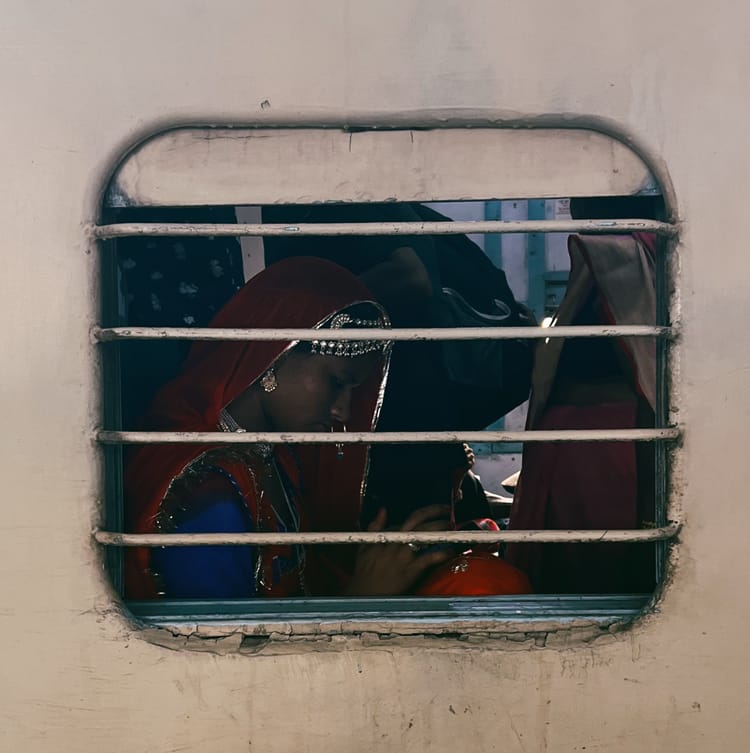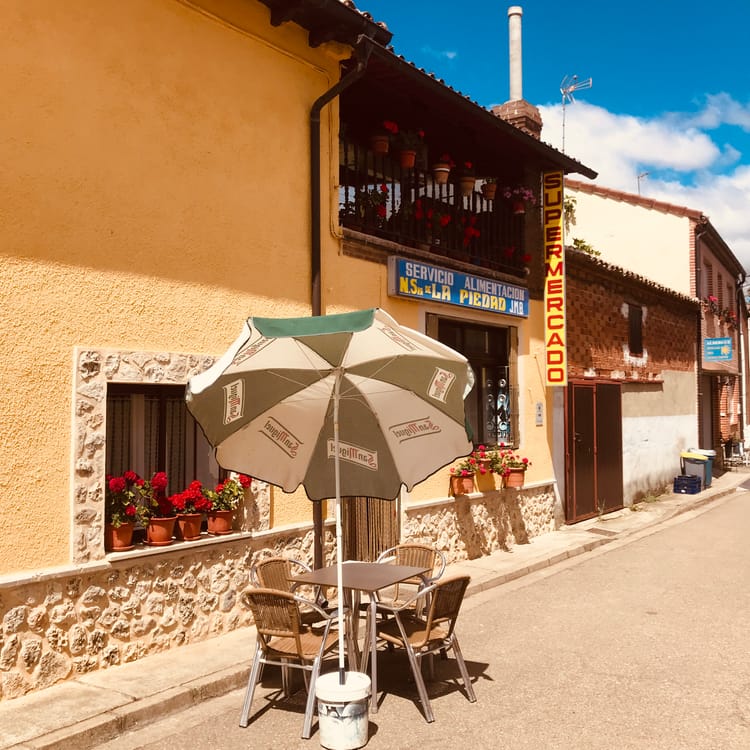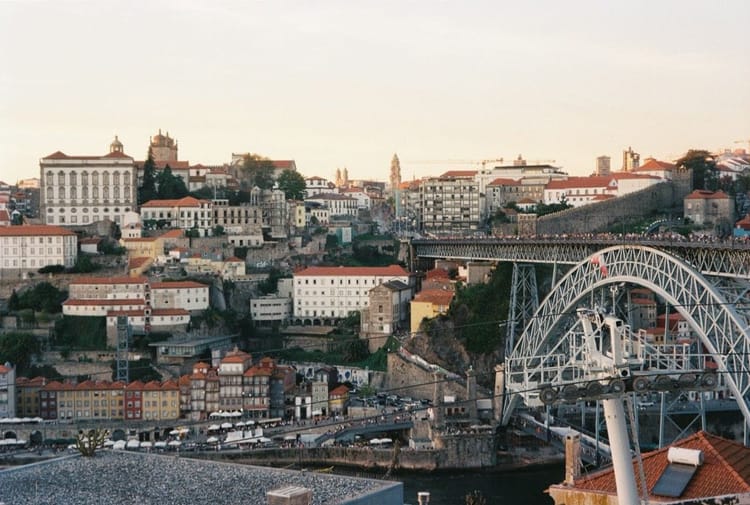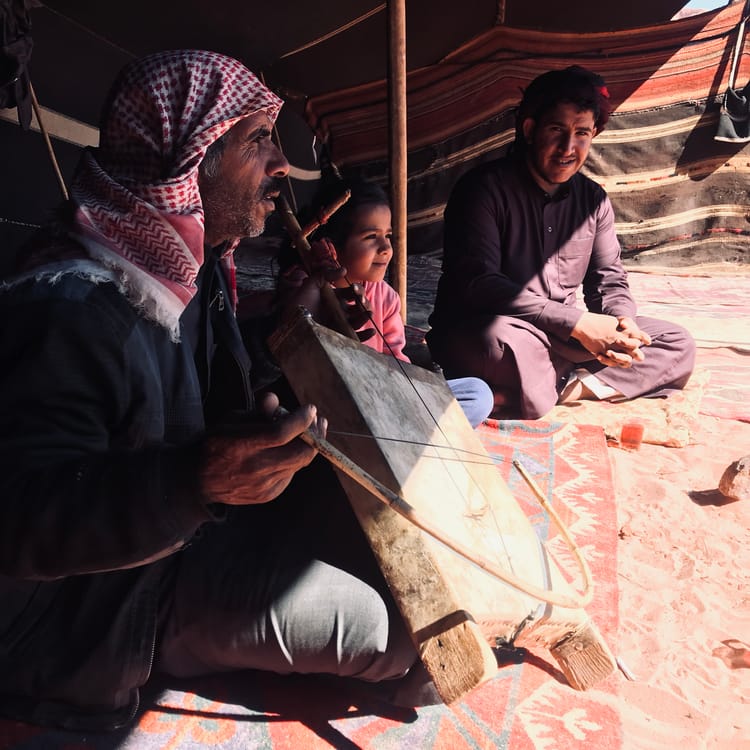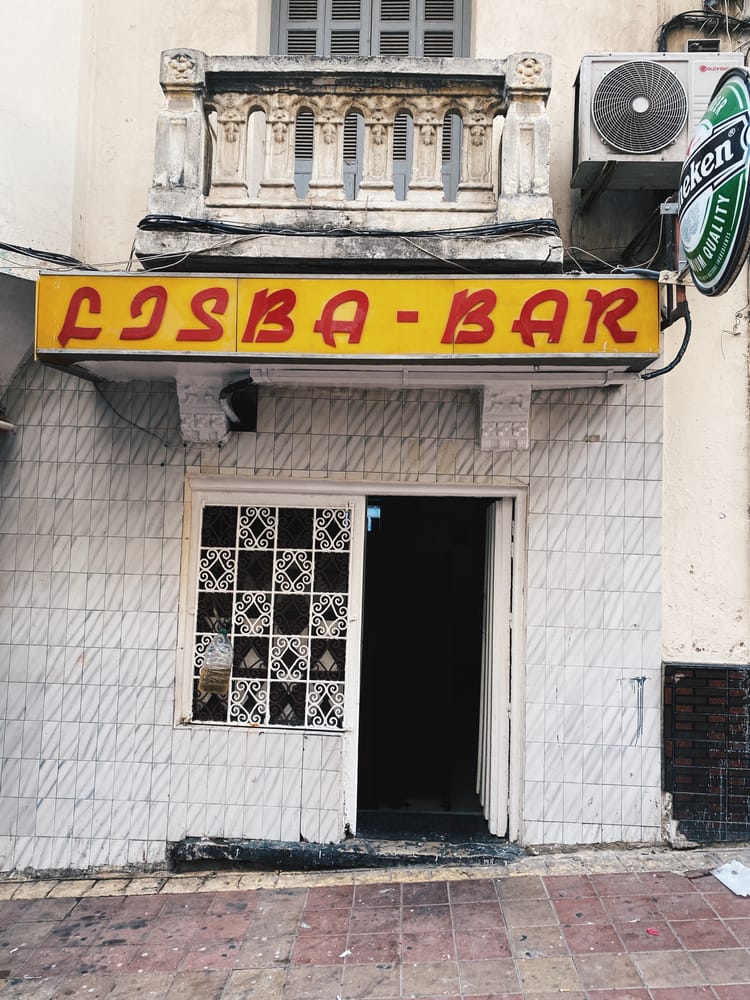Somewhere in Sapa
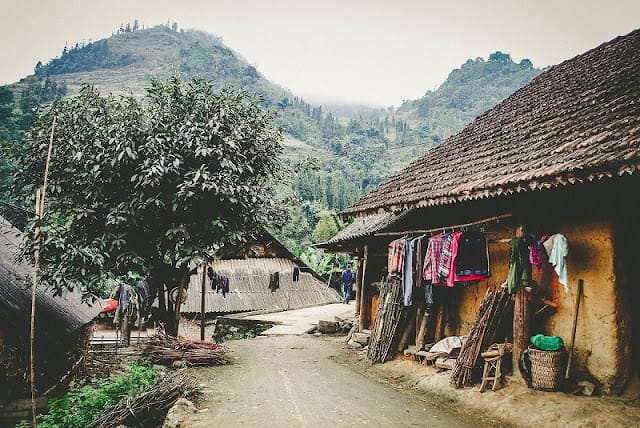
We were flying through the mountains of Northern Vietnam on a convoy of shaky motorbikes.
It had rained torrentially all morning, and the roads had become a muddy lasagna.
Each corner was a near-death experience—a near collision with a perpetual stream of heavily loaded trucks driven by even heavier-loaded lunatics.
The kind of driving that has your soul gently de-tethering with each bend as the statistical likelihood of survival wanes.
We'd managed to score opium in a dilapidated bar the previous evening, and, having scurried back to our guesthouse, the six of us had packed into one room and proceeded to smoke it out of a Coke can, listening to early Stones tracks as we piled onto two single beds.
It wasn't exactly a Lou Reed experience but a memorable first.
Lan found us in the street the following morning, searching for Banh Cam Banh Vong—Vietnamese donuts.
The city felt increasingly monotonous, and we were gingerly awaiting a catalyst.
She'd arrived synchronistically, promising six motorbikes and something different. Her proposal hinged on us following her into the mountains for a few hours.
Half an hour later, Sapa was fading from view, and the hangovers were relenting.
We wove among little towns peppered between seemingly endless rice fields, where the gentle, tired, yet enduring smiles of the sinewy farmers mocked our quaint, heavily romanticized Western notions of humble rurality.
For how many eons had these people tilled these hills in seasonal harmony before their sons were sent to fight for the Viet Kong and their daughters raped at the end of M16s by manic, war-hardened foreigners?
Vietnam, like Cambodia, had posed more questions than answers. The gentleness of the people and the vitality of the landscape only heightened the resonance of the violence perpetrated there.
*
The sun was nearing the horizon as Lan stopped beside a small mud hut at the end of a village.
"Tây! Tây! (Foreigner! Foreigner!)" she screamed towards the hut, as the nearby villagers curiously studied us.
"We here!" she beamed, beckoning us inside.
Two withered, elderly women welcomed us with frail, calcified hands.
The hut was sparsely furnished, with smooth dark walls and a hardened mud floor. It was one large room, yet a communal bedroom had been sectioned off with bamboo and low-hanging beams, creating an upstairs storage space.
We huddled around a low wooden table near a makeshift fire at the back of the main room. As we chatted away, Lan produced a nefarious cleanskin bottle from a shelf above a homemade stovetop in the corner.
"Rượu quốc lủi (Rice wine)!" She barked as the other women cackled behind a hideous shrapnel of rotting teeth.
She filled six shot glasses, howling hysterically at our unanimous winces.
I wondered how many young, privileged Western men these ladies had seen pass through their town looking for adventure.
Before đổi mới in the 1980s, the Communist government in northern Vietnam monopolized liquor production. Rượu quốc lủi was the resulting serum, the local moonshine concocted by farmers.
It was the kind of booze that could make you forget your mother's name, the kind that would power a lawnmower, yet the women inhaled it like it was tea, giggling at our contorted facial expressions as, round after round, we fell victim to their time-honored trap.
Next came the tobacco, packed into a three-foot bamboo flute and rather ceremoniously lit by the oldest matriarch.
There's nothing like pure tobacco on an empty stomach to send you into oblivion. It seared, and, as each of our eyes rolled into the back of our heads, the women roared louder.
Periodically, more villagers arrived unannounced, until, within an hour, the entire village was seemingly in the hut, caught in unanimous hysterics at the six of us trying to keep up with three 80-year-olds.
Shortly before dinner, a young girl appeared beside us with a large, unmistakable bamboo bong. She reached into a satchel around her waist and began expertly packing the cone with freshly ground herb.
"Medicine!" Lan cried, as the girl lit a match and handed the bong to the eldest woman. She received it gracefully, smiling as she muttered some words at the roof.
Whatever novelty we thought we'd wanted when Lan found us roaming the streets earlier that morning had been found.
By the end of the first "round," we were joined by an assortment of ecstatic, toothless neighbors who must have heard the evening's entertainment was to intoxicate the Tây! Tâys and watch them squirm.
The weed was otherworldly.
After the first hit, paranoia engulfed me, and the room became a carnival scene. I was surrounded by a kaleidoscope of eerily prolonged, elongated clown-like grins, cackling in foreign tongues, as their convoluted shadows danced on the walls. Even the familiar faces of my friends began to distort into a psychotic blur.
In an attempt to either push me deeper into the chaos or carry me out of it, Lan filled half a cup of rice wine and pushed it under my nose. I gagged at the smell alone but forced it down as the room erupted.
Finally, after a miserable half-hour of hallucinations and psychic phantoms, the medicine relented under the heaving weight of the sheer absurdity of our situation and the sight of food.
We ate for hours, as an infinite succession of dishes arrived at the table. Between each dish, the older women sang merrily, puffing on their tobacco and always smiling at us warmly.
These "village songs" as Lan called them, possessed a haunting resonance, a striking, hypnotic, alchemical element.
As the night wore on and the villagers began to depart, the songs seemed to convey the story of their people on an energetic level that transcended language. It was an aeonic connection to their land, their memory, and their divinities.
Between the rice wine, the medicine, and the chanting, the thresholds of reality and dreamscape began to wane, and I was certain I'd been carried off to sleep.
*
I awoke to a miserable groaning in the corner.
The six of us were huddled together on the clay floor, spooning under blankets.
Aside from the snoring, the room was quiet, perforated only by the relentless hum of the surrounding forest.
As my eyes adjusted, I registered Sam's naked silhouette squatting at my feet.
He stood up, swearing loudly as his head met the low-hanging wooden beam above us.
The boys were far too stoned to stir.
I followed as he stumbled towards the open hut entrance and walked out into the cool, cloudless night.
The village was covered in a thick mist, yet the tin rooftops were visible in the moonlight. Sam stood on the edge of a dirt mound leading to the door, clutching his stomach and swaying as he urinated off the edge.
Suddenly, as if animated by a forest spirit, he projectile vomited as his sphincter peppered the earth below with watery, algaeic sludge.
I quickly stifled laughter behind a freezing hand. He shrieked, jerking around as the shit dribbled down his calves, half-digested rice, and legumes pasted to his chin as a large, spotted pig wandered over to his feet and began feverishly licking his mess.
He stumbled towards me, suspended between tears and laughter, as my eyes began to adjust to the moonlight.
If ever I've witnessed a truly pathetic moment, this was it.
*
The villagers in the valley below had been stirring for several hours before we gingerly began to rustle.
The cocktail of intoxicants had been most unkind to us.
It was an hour before we were all assembled again around the scene of the previous night's errors, heads spinning.
The older women were barefoot, cutting vegetables on the floor as Lan ran about boiling water and making jokes, pointing and giggling at us in a dizzyingly high pitch.
Their sprightliness was astonishing.
Everything made me queasy, and I struggled to fix my focus on anything that could momentarily abate the nauseousness.
In the fleeting steady moments, I realized the room was filled with animals.
It reminded me of one of Van Ostade's paintings: Several dogs contentedly dozed in the corner, two chickens were pecking manically at the crumbs around the kitchen bench, a goat nibbled at the wooden doorway, and a large spotted pig was licking the floor around the ladies as they spread the morning vegetables across it.
A shiver reverberated around my body like a pinball. I convulsed. It was the same pig that, just hours prior, had delighted in Sam's feces.
We shot each other terrified glances as Lan called us over to the table and carried bowls garnished with "fresh" vegetables from the other women on the floor.
"Phở for you!"
We sat together, trying to drown out the pig snorts and stifle the urge to vomit as we gulped down the bone broth.
As in many similar regions of the world, to decline food, particularly meat, is impolite bordering on insulting. We chowed the bowls down quickly, imagining we were somewhere over the rainbow.
*
As the engines sleepily grumbled we heard a peripheral cry.
Lan was sprinting down the road behind us carrying a large, overflowing plastic bag.
We veered into a muddy roadside ditch.
"For you!" She smiled, catching her breath as she presented us with enough weed to sedate a village.
Touched by the gesture, we attempted multiple charades to explain that six tây tây's driving through Vietnam with a few kilos of marijuana was a death sentence.
Eventually, only after we feigned sickness, disappointed and confused, she relented.
As we began the long journey back to Sapa, I reflected on Lan's universe.
It wasn't obvious to me that her family was unhappy. Their contentment was rare back home.
And, while I wrestled the arrogance to dye the tapestry of their lives with a darkened, bleak, almost hopeless hue, I was struck with the peculiar feeling that their lives had retained something I'd never possessed, let alone lost—a lack of desire—a deep, indistinguishable gratitude for the simple, mundane, dignified beauty of living.
Something about how their faces stoically embraced deep ravines as the natural cycles rolled on and the fire spawned endless shadows on the walls of their austere home gave them vitality and spontaneity—true joy.
As they harvested their vegetables, celebrated village milestones, and chanted into the evenings, I wondered if they lived in the past and longed for future acquisitions as we did, or, if they'd grasped the eternal secret that true contentedness lies in our perpetual suspension in the generous present.

